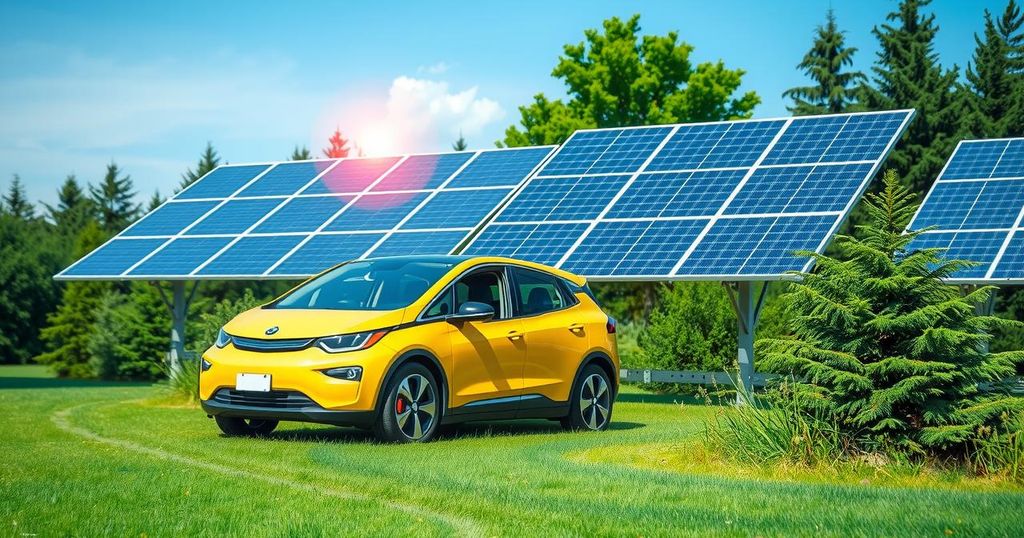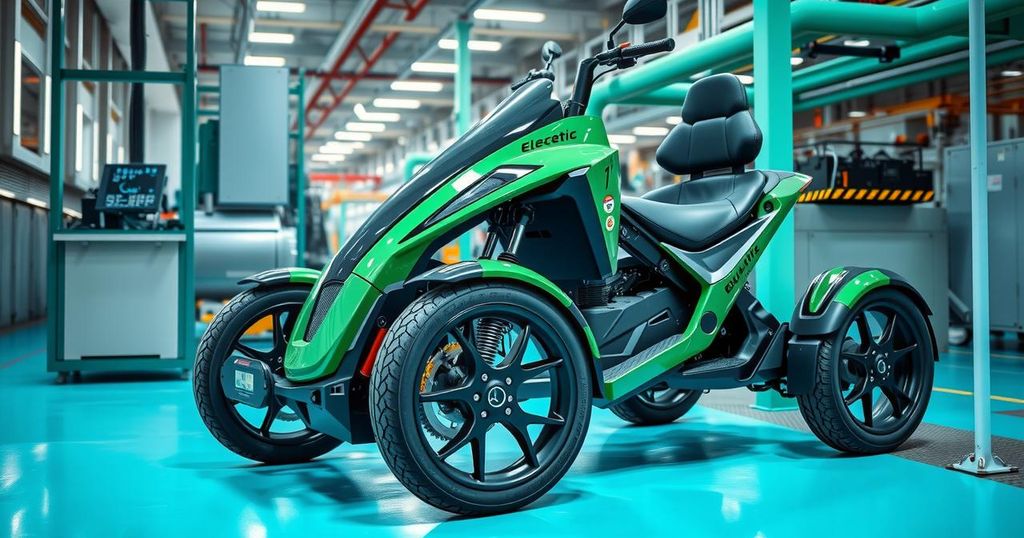Rwanda’s Rwf1.2 Billion Carbon Market Project to Enhance Electric Vehicle Adoption
The Rwandan government has launched a Rwf1.2 billion carbon market project to promote electric vehicle (EV) adoption. Funded by the GGGI and implemented by REMA, the initiative will enhance stakeholder awareness and capacity. The project aims for substantial investments in carbon reduction across sectors while recognizing the need for improved EV infrastructure. Estimated financing of $900 million is required for full EV adoption by 2030, with efforts ongoing to stimulate private sector participation.
The Rwandan government has initiated a Rwf1.2 billion project to operationalize a carbon market aimed at enhancing awareness and capacity among both public and private sectors. According to electric vehicle dealers, this initiative is likely to promote the adoption of electric vehicles (EVs) in the country. The project, named the Rwanda Article 6 Readiness and Carbon Market Framework Operationalisation, is funded by the Global Green Growth Institute and will be executed with the Rwanda Environment Management Authority over a two-year period.
This initiative’s objective is to provide technical assistance in developing high-quality carbon reduction projects across various sectors, including agriculture, forestry, energy, transport, and waste management. REMA has identified the advancement of renewable energy initiatives, especially electric vehicles, as having significant potential in the carbon market, offering opportunities for project identification and design.
A carbon market operates by trading carbon credits, whereby each credit represents a tonne of carbon emissions reduced. This system allows businesses to offset their emissions through investments into projects that minimize greenhouse gases in different countries. To fully adopt electric vehicles and establish necessary infrastructure, Rwanda requires approximately $900 million in financing by 2030, offering substantial financial incentives for emissions reduced via the carbon market annually.
The carbon market framework encourages private sector engagement in the transition to a carbon-neutral economy. Srinivas Cheruvu, Managing Director of CFAO Mobility Rwanda, stated that fossil fuel-powered vehicles have historically contributed to pollution, while electric vehicles present a sustainable alternative. He also pointed out how EVs can attract market investments, especially for corporate fleets, due to their cost-effectiveness and emission reduction capabilities.
For example, the BYD Dolphin electric car boasts a 44.8 KWH battery that allows for a return trip from Kigali to Rubavu (340 km) at a charging expense of Rwf11,000—far less than the Rwf57,000 fuel required for the same trip. Other models can achieve ranges of 520 km and 420 km per charge, emphasizing their efficiency. Additionally, the ease of home charging is a considerable benefit.
Cheruvu underlined that Rwanda’s strategy toward green growth facilitates the expansion of the EV market. He also mentioned that tax exemptions serve as a significant encouragement for EV adoption, coinciding with the government’s focus on clean energy and innovative technology. However, users face hurdles such as long charging times due to a lack of public fast chargers, as most chargers require nearly an hour to recharge an EV battery.
To address the EV infrastructure shortfall, Teddy Mugabo, CEO of the Rwanda Green Fund, confirmed that the fund supports various e-mobility initiatives, including the development of charging stations. Additionally, Faustin Munyazikwiye, Deputy Director General of REMA, reiterated the role of renewable energy projects, such as EVs, in Rwanda’s carbon market strategy, highlighting international partnerships for capacity building and project design.
Rwanda’s agreements with Singapore, Sweden, and Kuwait under Article 6 of the Paris Agreement aim to facilitate carbon credit trading. The unveiling of Rwanda’s National Carbon Market Framework at COP28 underscores the strategic efforts to utilize market mechanisms to reduce greenhouse gas emissions and provides guidelines for carbon credit trading.
Despite facing initial delays due to awareness and capacity issues, REMA is committed to increasing transparency and functionality within the carbon market. This initiative is intended to attract international investments, promote sustainable development, and significantly contribute to global climate mitigation efforts. Caroline Raes of GGGI emphasized the importance of equitable participation in carbon markets to enhance investments in emissions reduction initiatives, facilitating the transfer of green technologies and mobilizing substantial financial resources for climate action.
The launch of Rwanda’s carbon market project is a strategic step towards enhancing electric vehicle adoption and fostering a sustainable, carbon-neutral economy. This initiative not only aims to raise awareness and build necessary capacity among stakeholders but also facilitates significant financial investments in carbon reduction projects across various sectors. Challenges such as infrastructure and charging station availability are being recognized and addressed, paving the way for Rwanda’s advancement in both the local and international carbon markets.
Original Source: www.newtimes.co.rw




Post Comment